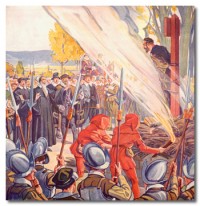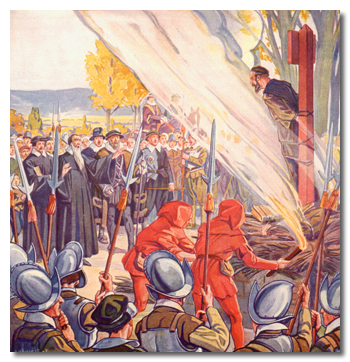
Despite how hard I have been on doctrinal statements in recent posts, I do think there are several good uses for them. Here are three:
Doctrinal Statements provide a guiding hermeneutic.
In some ways, doctrinal statements are a summary of the doctrinal conclusions that Christians of the past have drawn from Scripture. They tell us what various groups have thought were key ideas from the Bible. In such a way, they can provide a guide for us in our own study. If we believe that the Holy Spirit has helped guide Christians of the past to know and understand the truth of Scripture, then doctrinal statements can help us in our own understanding and interpretation of Scripture.
For example, most doctrinal statements include the idea that Jesus is fully human and fully divine. Therefore, we must be extremely cautious about any teaching to the contrary, for nearly all Christians throughout church history have held to this belief. Similarly, other points from doctrinal statements often represent key teachings from Scripture and can help guide our own study into Scripture, keeping us within the doctrinal boundaries of Christians from the past (See The Shape of Sola Scriptura for more on this idea).
[Read more…]







 One of the primary problems with doctrinal statements is what they do to the gospel. Usually, we believe that creeds and confessions protect the gospel, defending it against heresy, keeping at bay those who teach a false gospel, and leading people toward central truths of gospel, such as God’s holiness, our sinfulness, and the person and work of Jesus Christ.
One of the primary problems with doctrinal statements is what they do to the gospel. Usually, we believe that creeds and confessions protect the gospel, defending it against heresy, keeping at bay those who teach a false gospel, and leading people toward central truths of gospel, such as God’s holiness, our sinfulness, and the person and work of Jesus Christ.






 In years past,
In years past, 
 We Christians are wacko.
We Christians are wacko.


 How do we explain this horrendous behavior of past Christians? The most popular way is to say that Christians of the past were influenced by their culture, and so were not at fault.
How do we explain this horrendous behavior of past Christians? The most popular way is to say that Christians of the past were influenced by their culture, and so were not at fault.